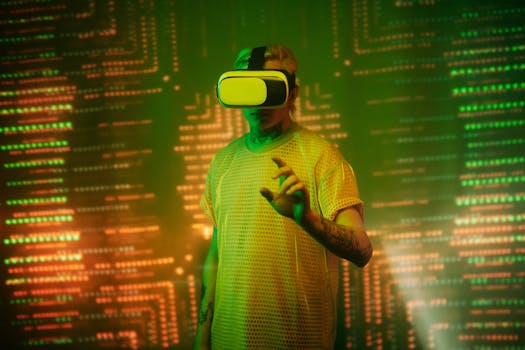Critical Thinking in the AI Era: Teaching Humans to Outthink Machines
The advancement of artificial intelligence (AI) has undoubtedly transformed the way humans think and work. With the ability to process vast amounts of data and perform complex tasks, machines have become an integral part of our society. However, as AI continues to evolve and become more prevalent, there is a growing concern that it may eventually replace human thought. This raises the question, how can humans keep up in the AI era? The answer lies in critical thinking and the importance of teaching humans to outthink machines. In this article, we will explore the concept of critical thinking in the AI era and how it can be nurtured to help humans thrive in the age of machines.
Understanding Critical Thinking
Critical thinking is the ability to analyze, evaluate, and interpret information in a logical and systematic manner. It involves questioning assumptions, considering multiple perspectives, and drawing conclusions based on evidence. In short, it is a cognitive process that allows individuals to think independently and make sound decisions.
In the AI era, where machines can process and generate vast amounts of data in a fraction of a second, critical thinking is more crucial than ever. With machines taking over routine and repetitive tasks, humans must rely on their critical thinking skills to add value to their work and remain relevant in the workforce.
The Role of Critical Thinking in the AI Era
Complementing AI’s Abilities
One of the main advantages of AI is its ability to process and analyze massive amounts of data with great accuracy. However, machines lack the ability to think critically and make connections between seemingly unrelated pieces of information. This is where humans excel. Our unique cognitive abilities, such as intuition, creativity, and empathy, allow us to complement AI’s capabilities and make complex decisions that go beyond what machines can do.
Avoiding Bias and Errors
As advanced as AI may be, it is not immune to bias and errors. AI systems are only as good as the data they are trained on, and if the data is biased, it can lead to biased decision-making. In contrast, humans can detect and address bias in data, and with critical thinking, we can identify and correct errors in machine-generated results. This is especially crucial in industries like finance, healthcare, and law, where decisions have significant impacts on individuals and society.
Promoting Innovation
Critical thinking is the driving force behind innovation. By questioning the status quo and thinking outside the box, humans can come up with new and creative ideas that can add value to businesses and society. Machines, on the other hand, rely on rules and logic, limiting their ability to think creatively. In the AI era, where innovation is crucial to stay competitive, critical thinking becomes a valuable skill that can set humans apart from machines.
Nurturing Critical Thinking in the AI Era
The good news is, critical thinking can be taught and developed. As AI continues to evolve and take over routine tasks, educators and businesses must focus on nurturing critical thinking skills in individuals. This means incorporating critical thinking into school curriculums and creating learning opportunities for employees to develop these skills.
Encouraging Questioning and Curiosity
One way to nurture critical thinking in individuals is by encouraging them to ask questions and be curious. This means creating a learning environment that promotes exploration, experimentation, and open-mindedness. By encouraging individuals to question the information presented to them, they can develop a critical eye towards the information they encounter, whether it is from machines or humans.
Teaching Interpretation of Data
In the AI era, individuals are bombarded with data from various sources. To think critically, individuals must be able to interpret and analyze this data effectively. Educators and businesses can teach individuals how to interpret data by providing them with tools and techniques to analyze data critically. This can help individuals identify trends, patterns, and outliers that machines may miss and draw meaningful insights from the data.
Promoting Collaboration
Collaboration between humans and machines is essential in the AI era. However, to make this collaboration successful, individuals must be able to understand and work with machine-generated results. This requires critical thinking skills to evaluate and interpret the data and collaborate with machines to reach innovative solutions.
Conclusion
In conclusion, the rise of AI has undoubtedly raised concerns about the future of human thought. However, by recognizing the importance of critical thinking and nurturing it in individuals, humans can continue to thrive in the AI era. Critical thinking not only complements AI’s abilities but also allows us to avoid bias and errors, promote innovation, and collaborate effectively with machines. As we move towards a more automated world, critical thinking becomes a crucial skill that can help us stay ahead of machines and outthink them.







